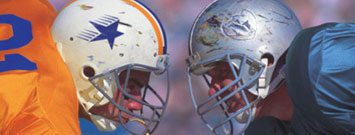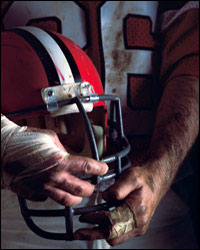Recognize and Prevent MRSA Infections
 As kids head back to classrooms and sports venues, parents are encouraged to learn how to recognize and prevent skin infections caused by methicillin-resistant Staphylococcus aureus (MRSA), a type of staph bacteria that is resistant to certain antibiotics.
As kids head back to classrooms and sports venues, parents are encouraged to learn how to recognize and prevent skin infections caused by methicillin-resistant Staphylococcus aureus (MRSA), a type of staph bacteria that is resistant to certain antibiotics.
Visit www.cdc.gov/MRSA for posters, fact sheets, e-cards, graphics and more.
It is estimated that Americans of all ages visit the doctor more than 12 million times per year for skin infections that are typical of staph, more than half of which are MRSA. The good news is that a few simple steps can help parents protect their families.
MRSA is methicillin-resistant Staphylococcus aureus, a potentially dangerous type of staph bacteria that is resistant to certain antibiotics and may cause skin and other infections. As with regular staph infections, recognizing the signs and receiving treatment for MRSA skin infections in the early stages reduces the chances of the infection becoming severe. MRSA is spread by:
 Having direct contact with another person's infection
Having direct contact with another person's infection- Sharing personal items, such as towels or razors, that have touched infected skin
- Touching surfaces or items, such as used bandages, contaminated with MRSA
Recognize the Signs and Symptoms of Infections
Most staph skin infections, including MRSA, appear as a bump or infected area on the skin that may be:
- Red
- Swollen
- Painful
- Warm to the touch
- Full of pus or other drainage
- Accompanied by a fever
 Take Action if You Suspect an MRSA Skin Infection
Take Action if You Suspect an MRSA Skin Infection
Cover the area with a bandage and contact your healthcare professional. It's especially important to contact your healthcare professional if signs and symptoms of an MRSA skin infection are accompanied by a fever.
Protect Yourself and Your Family from MRSA Skin Infections
- Know the signs of MRSA skin infections and get treated early
- Keep cuts and scrapes clean and covered
- Encourage good hygiene such as cleaning hands regularly
- Discourage sharing of personal items such as towels and razors
More Information
- Call 1-800-CDC-INFO
- CDC MRSA home page
- Prevention of MRSA Infections in Schools
- MRSA Prevention Information and Advice for Athletes
- Environmental Cleaning & Disinfecting for MRSA
CDC works 24/7 saving lives and protecting people from health threats to have a more secure nation. A US federal agency, CDC helps make the healthy choice the easy choice by putting science and prevention into action. CDC works to help people live longer, healthier and more productive lives.
Get email updates
To receive email updates about this page, enter your email address:
Contact Us:
- Centers for Disease Control and Prevention
1600 Clifton Rd
Atlanta, GA 30333 - 800-CDC-INFO
(800-232-4636)
TTY: (888) 232-6348 - Contact CDC-INFO



